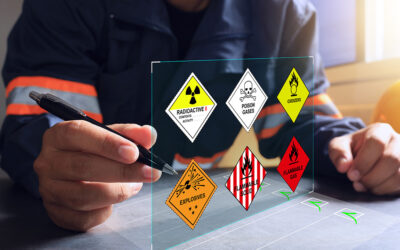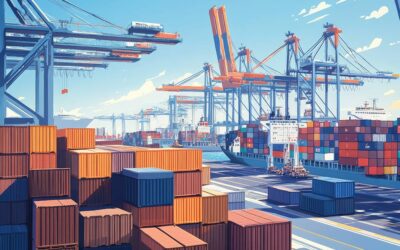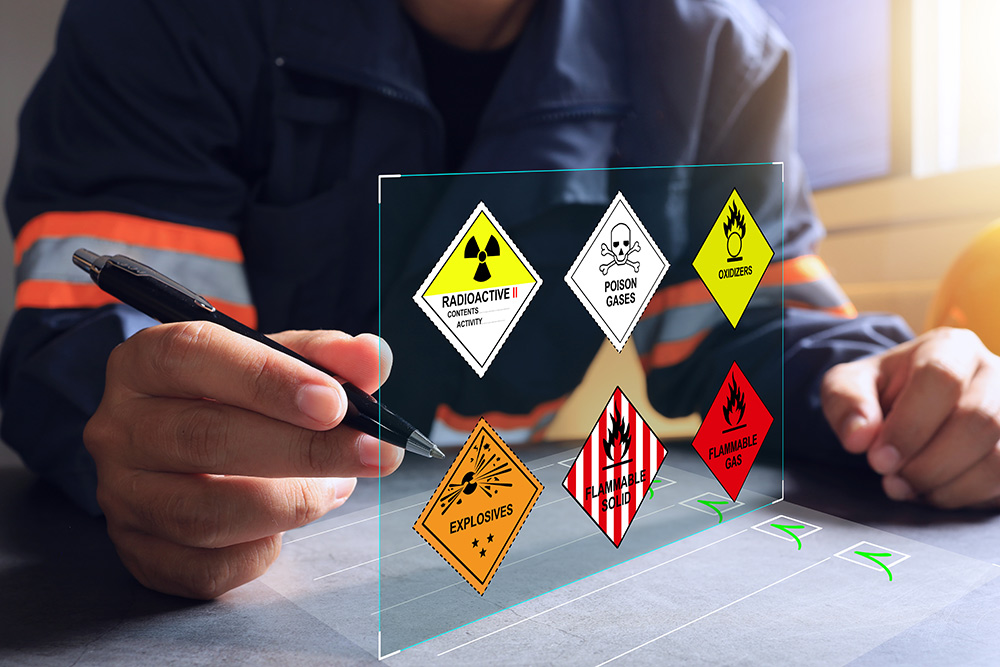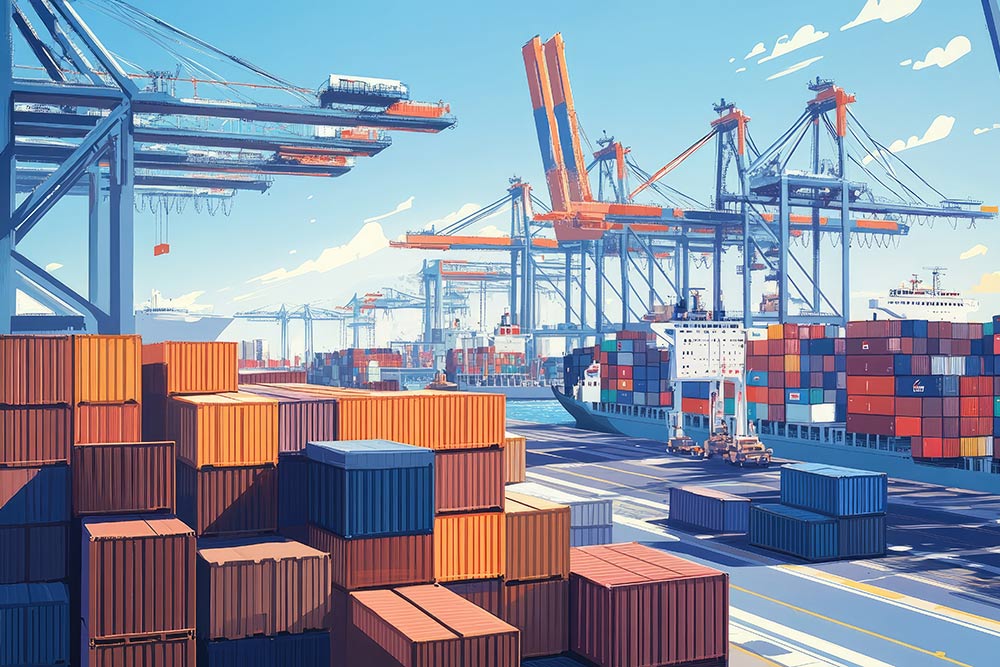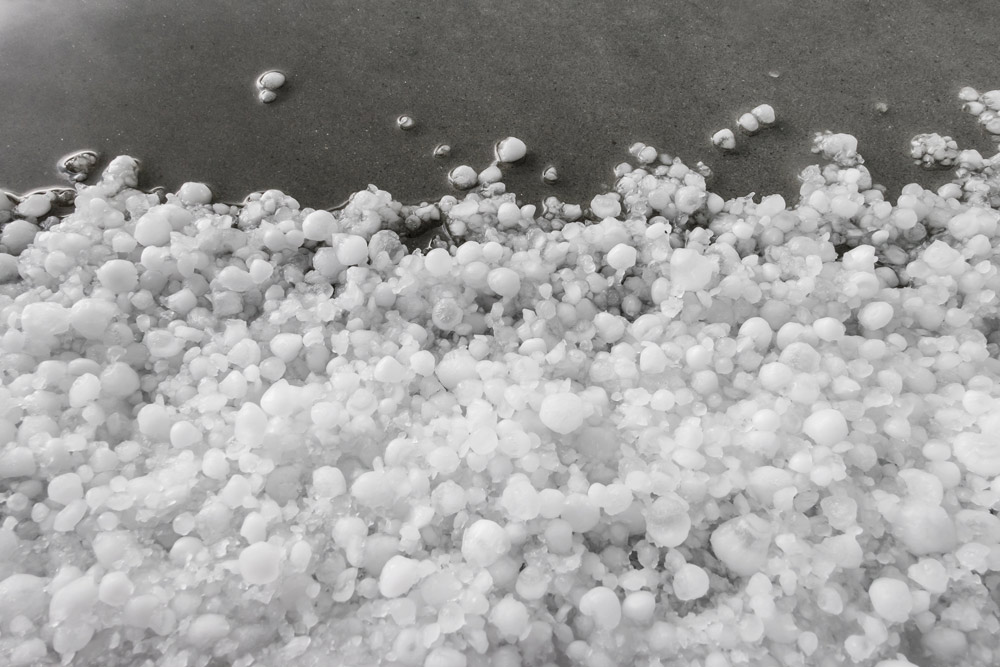Dangerous Goods – The Cause Of Fatal Ship Fire?
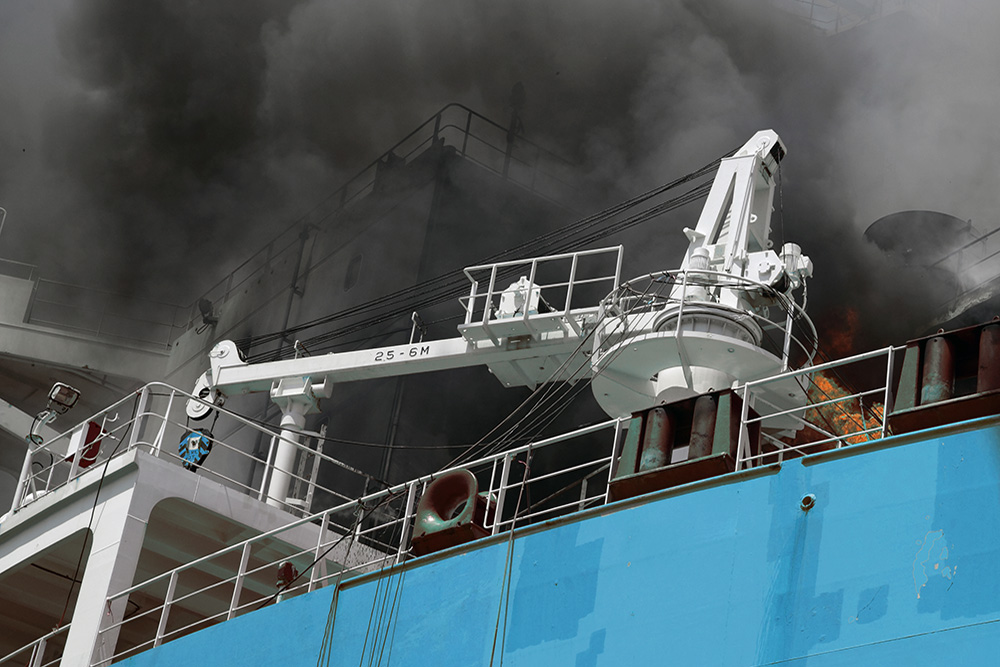
Follow Us
Stay up to date with our news and articles on social media
Contact Us
Tel 0800 434 6244
Email info@evolutionforwarding.com
A report by Singapore’s Transport Safety Investigation Bureau has concluded that the deadly fire aboard the containership ‘Maersk Honam’ in 2018, may well have been caused by dangerous goods.
While they could not conclusively determine the cause, the report ruled out other likely sources. This had led to the view that a giant block stow of an oxidizing compound, called sodium dichloroisocyanurate dihydrate (SDID), was the cause of the fire, the loss of four lives and led to multi million pound ship being scrapped.
SDID is classified as Class 9 miscellaneous dangerous goods and not the more dangerous Class 5.1 oxidizer. However, it is highly oxidizing and has the potential for self-decomposition when stowed in bulk, which has led to a recommendation to reclassify the product.
When the vessel set sail in March 2018, 1,000 tonnes of SDID was stowed in a stack of 54 containers in one of her holds – the hold where the fire broke out. The stow was fully compliant at the time and therefore no safety issues were detected.
At 19:45 on March 6th, while in transit off the coast of Oman, a smoke alarm went off in the above mentioned hold. The report outlines that the ship’s master smelt chlorine as he headed for the bridge, but saw no smoke. 6 minutes later, the fire alarm was sounded and crew members gathered for a response.
Two firefighting teams managed to shut off most of the vents around the hatch to the hold, but they could not seal off ventilation flaps on the port side. Despite this, the master ordered the use of the CO2 flooding system in an attempt to extinguish the blaze. The third and final use of the CO2 was followed by several explosions and a large plume of smoke, which engulfed the accommodations block and led to panic.
The crew abandoned ship and of the 23 survivors rescued by another nearby vessel, one crew member died of injuries before reaching the shore. During the rescue and salvage operations, the bodies of two more crew members were discovered and one crew member has never been found.
The survivors reported that during the firefighting they encountered “white colored smoke with a strong bleach or chemical smell,” and were experiencing breathing difficulties and skin irritation. A blue uniform recovered from the ship was almost white, and nearby firefighting gear showed extensive bleach discoloration.
While not conclusively determining the dangerous goods as the cause, the investigators have noted that the crew’s testimonies are consistent with exposure to the decomposition of SDID, which produces white smoke and chlorine gas when overheating.
Evolution Forwarding specialise in the movement of dangerous goods internationally, by air, ocean and road. We provide a complete solution which includes packing, documentation, compliance and training for dangerous goods products. For further information please email info@evolutionforwarding.com or call 0800 4346244.
Dangerous Goods Logistics
Find out more about our Dangerous Goods Packing & Logistics Services
Dangerous Goods Compliance
Find out more about our Dangerous Goods Compliance Services
brought to you by the dangerous goods people
Evolution Forwarding offer a range of dangerous goods and logistics services including packing, classification, training, DGSA services, air freight, ocean freight and road freight.
Related Articles
China Tightens Dangerous Goods Rules From Ningbo
Dangerous goods shipments from Ningbo port are now subject to stricter controls, following the explosion aboard the Yang Ming Mobility at the end of August.
Ocean Carriers Clamping Down On Lithium Batteries
Ocean freight carriers are starting to tighten up on the shipment of lithium batteries, which can no longer be loaded together with other dangerous goods.
US Port Strike Seemingly Fast Approaching
A major port strike is set to impact 36 ports on the US East Coast and Gulf Coast ports, which could have a devastating effect on US ocean freight services from October if an agreement cannot be reached in the next week.

